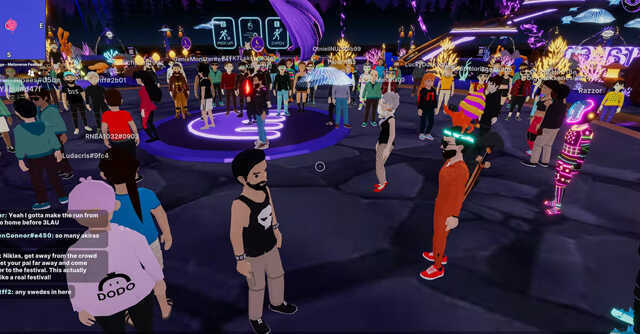
25% of all individuals will spend at least an hour in the metaverse by 2026: Gartner

Interest in the metaverse has been on the rise over the past year. Now, market research firm Gartner, says that 25% of all individuals will spend at least one hour in the metaverse by 2026. This could be for work, shopping, education, or entertainment needs, the company said in a report.
The metaverse is a virtual world where users can create their own avatars and interact with each other. Companies like Meta (formerly Facebook) and Microsoft have committed billions of dollars into building products that will facilitate such interactions, and interest in the metaverse has been growing since Facebook rebranded itself to Meta in October last year.
For instance, on February 6, a couple from Tamil Nadu hosted their wedding reception in a virtual world as the state had imposed restrictions on how many people could attend wedding ceremonies. The couple — Dinesh Kshatriya and Janaganandhini Ramaswamy — hosted their wedding reception in a Harry Potter-themed virtual world, dubbed the first metaverse wedding in Asia.
Also read: American couple gets married in a metaverse game
To be sure, virtual weddings like the one mentioned above aren’t what the metaverse envisions, but it’s a start. Musician Daler Mehendi had also announced a metaverse concert on January 26 to celebrate India’s Republic Day, while international stars like Ariana Grande have performed in front of millions of fans inside the virtual world of Fortnite, a battle royale game.
“From attending virtual classrooms to buying digital land and constructing virtual homes, these activities are currently being conducted in separate environments. Eventually, they will take place in a single environment – the metaverse,” said Marty Resnick, research vice president at Gartner.
In a blog post in May last year, Sam George, corporate vice president of AzureIoT at Microsoft, said that the company had already created metaverse experiences for Alcohol Company InBev and French University Paris Saclay. Chipmaker Nvidia also launched its own metaverse platform, called the Nvidia Omniverse in November last year, which will help with the development of 3D virtual worlds.
Gartner predicted that the metaverse will have a virtual economy that will be enabled via digital currencies and non-fungible tokens. Taking a step further, the research firm said that enterprises will provide virtual workspaces, which will help in better engagement, collaboration and connection to employees.
“By 2026, 30% of the organizations in the world will have products and services ready for metaverse,” said Resnik. He also noted that the market for the metaverse is fragmented and in its nascent stages right now, meaning it is “still too early” to know whether investments will be viable in the long term.

